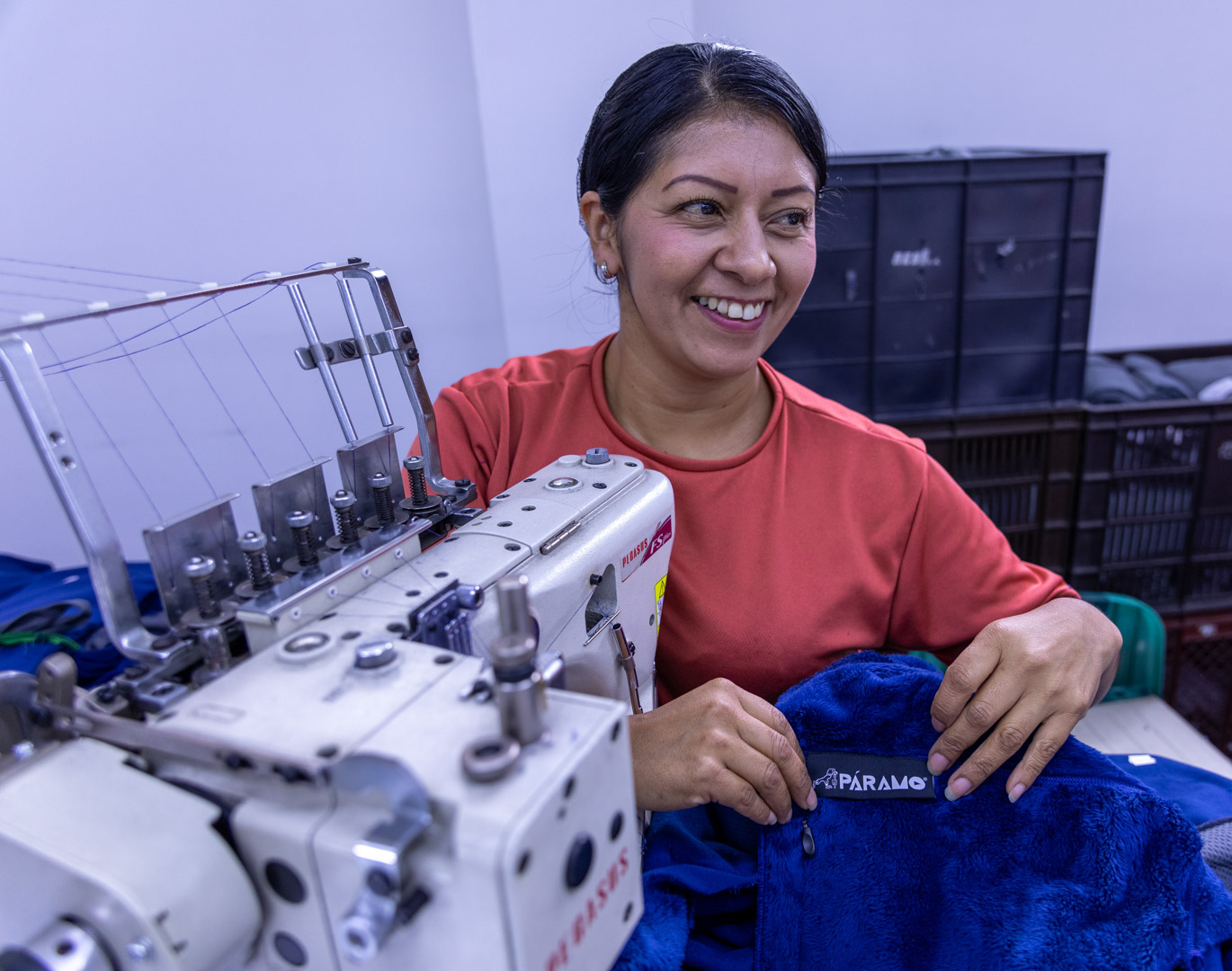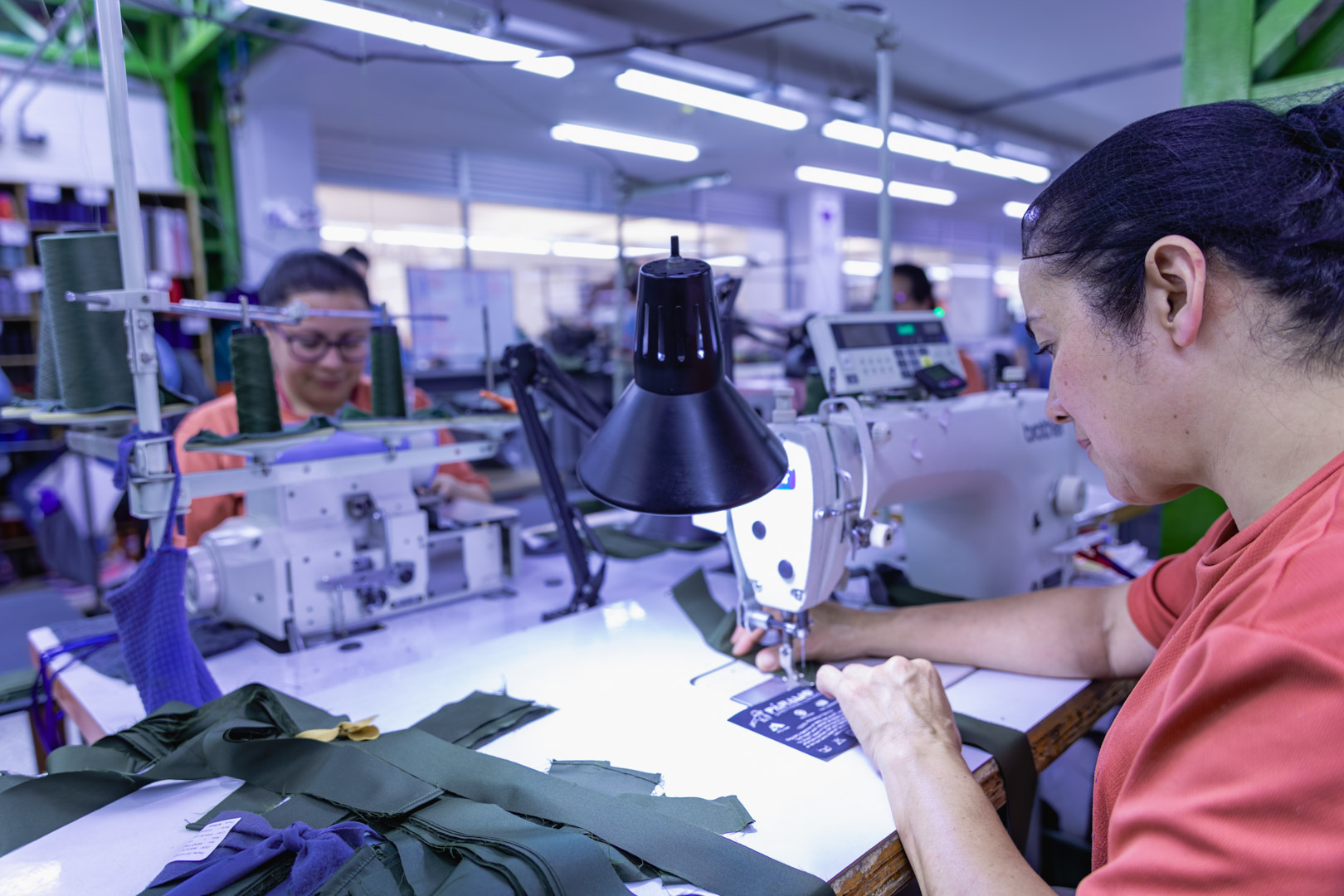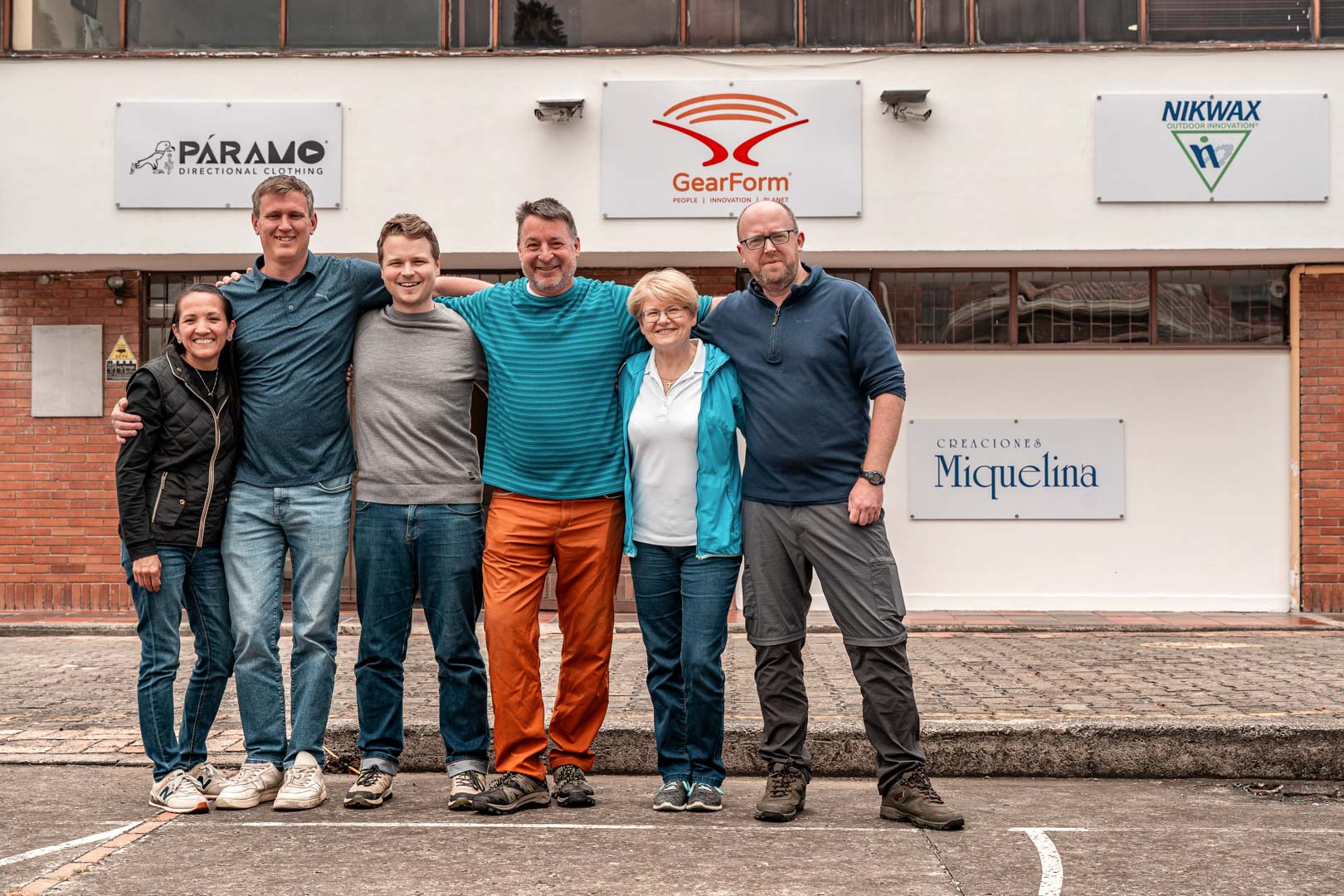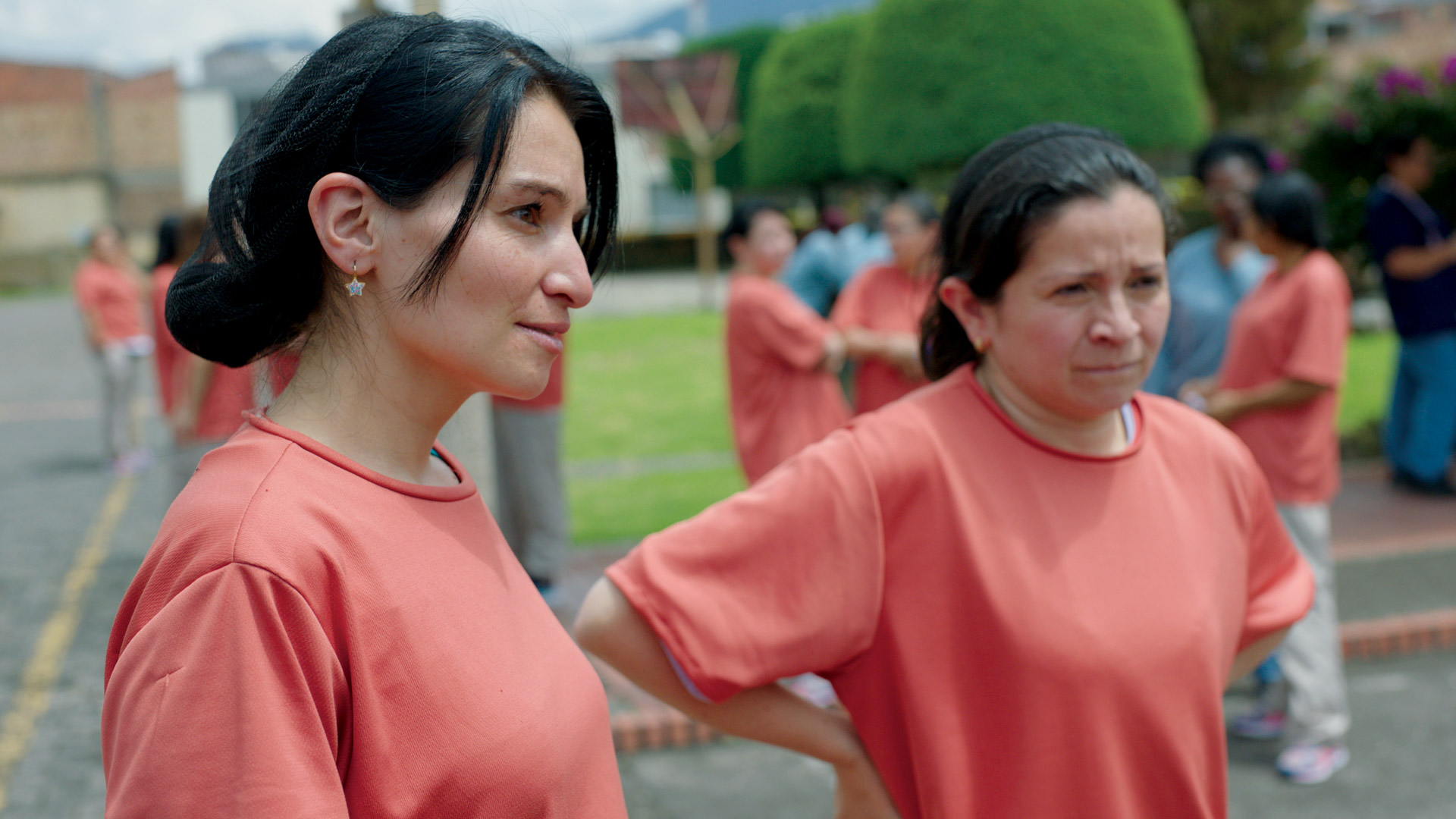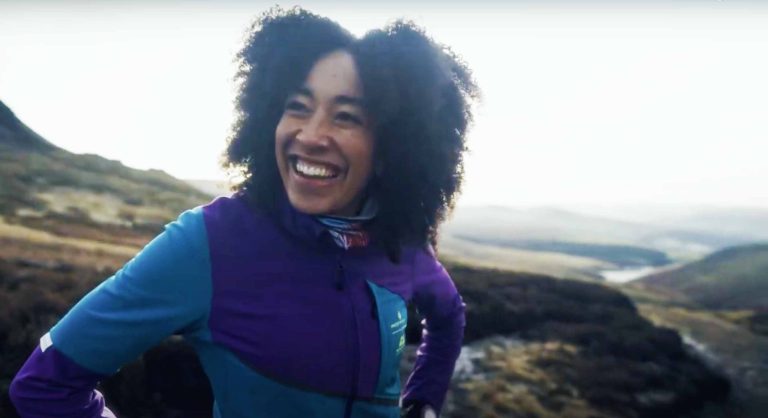For centuries, mountaineers have trekked the Andes, drawn to its volcanic, snow-capped peaks. Stretching across seven South American countries, the Andes form one of the world’s longest mountain ranges, with climates ranging from tropical to dry to wet. It was in this rugged landscape that Páramo founder Nick Brown first tested his innovative fabric designs in 1986.
High in the Andes lies Bogotá, Colombia’s sprawling capital. It was there that Brown met Sister Esther Castaño Mejía while searching for a manufacturer for his garments. Her group of ambitious nuns from the Las Adoratrice convent had founded a small-scale initiative in the city, Creaciones Miquelina, with the aim of getting vulnerable women in the region into skilled employment. Fifty years of civil war had caused mass-displacement within the country, creating a particularly dangerous and desperate environment for many women. Creaciones Miquelina offered practical support to women facing exploitation, many of whom were trapped in cycles of prostitution and drug use, often while taking care of their children.
You can hear first-hand from some of the foundation workers in this video.
At the time, Sister Esther’s initiative comprised a small workshop with just two hand sewing machines shared between around twenty women who were given enough training to enable them to apply for jobs in other factories. The idea to unify Páramo and Creaciones Miquelina would, however, enable the initiative to become a viable commercial enterprise. In 1997, Miquelina was officially incorporated as an independent charitable foundation, assuming its current name, the Miquelina Foundation. In 2002, it attained ISO 9001 accreditation, a prestigious industry standard that measures service and product quality.
Employee Ownership
Exactly twenty years later, Páramo transitioned to employee-ownership, meaning that Miquelina workers would also receive an equal stake in the brand’s future.
“The move to employee-ownership has been very big with many expectations – to improve my family’s way of life and to finish paying off my house and my debts,” explains Viviana Montenegro, a Flat Machine Operator at the Miquelina Foundation. I am also in a better position to help pay for my daughters’ to study and go to university.”

